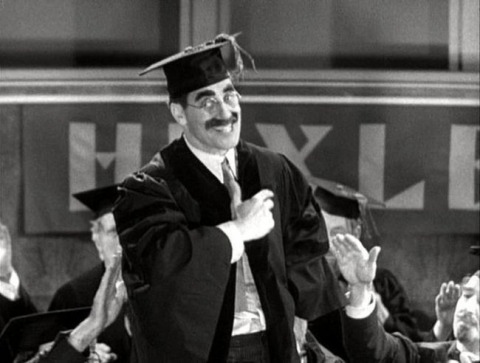
Novelist and writing teacher Claire Messud, addressing the class of 2020: “You’ve been asked to work harder and longer than students in past generations, and there has been increasingly little space for the immaterial superfluities that make life worthwhile – sitting outside with friends, talking, the breeze tickling your skin; listening, eyes closed, to the rhythm of the tides; reading War and Peace, or a cookbook, or a poem.”
Yes, that’s what we keep telling them.
Professor Messud has got the symptom right: There isn’t much silence, stillness, and quiet in our students’ lives. But have students really been asked to work harder and longer than students in past generations? I concede that this may be the case in the natural sciences. But in the liberal arts?
Judge for yourself. In early America, when our schools of higher education were just getting started, all students at Yale and Harvard studied Latin, Greek, and Hebrew. They read the classical authors in the original languages, which is how they learned history. They learned to master mathematics, classical logic, geography, natural science, ethics, metaphysics, and the discipline of argument, then called rhetoric. They recited, discussed, and engaged in disputations.
Those were undergraduates.
Today, core courses have been almost entirely replaced by distribution requirements – choose one from column A, one from column B, and one from column C. Much of the curriculum has been politicized, and the pragmatist notion that skills are more important than facts is accepted without question, as though it were possible to learn skills without the facts to use them on. Though my own institution has higher than average admission standards, many of my students read at what used to be considered high school level. By empowering them to evaluate their own teachers, the universities put weapons in their hands to punish the few who do work them hard.
The lives of our students do lack quiet -- chiefly for the same reason the lives of their elders lack quiet: It is a choice. For when the soul becomes silent and still, it may hear its thoughts, and if you live in a certain way, such thoughts are disturbing. The favored solutions are constant busyness, continuous noise, and trying to do many things at once.
I love my students, and I am not maligning them. Some of them are very bright and earnest, and would love to be taught the liberal arts, but we are not teaching them. Every now and then a student visits my office to say, “I’ve come to realize that I’m not getting a real education. How can I become an educated person?”
If you are that kind of student, I tell you now: Don’t settle. Don’t settle for what we spoon feed you. Don’t listen to those who tell you how hard you have been challenged. There is so much more! It’s not too late. With guidance and strong motivation, you can still receive an education. The one fatal error is to suppose that we will give it to you without a fight.
Opening quotations from Claire Messud,
“A Moment for Inward Pilgrimages,”
The Wall Street Journal
(2-3 May 2020), p. C3